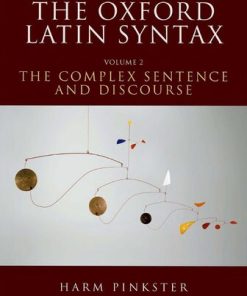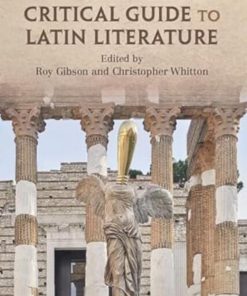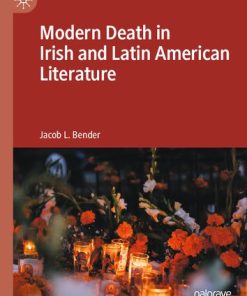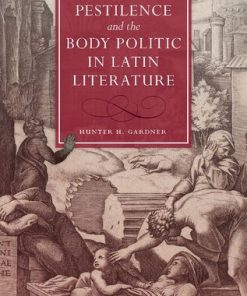Complex Inferiorities: The Poetics of the Weaker Voice in Latin Literature 1st Edition
$50.00 Original price was: $50.00.$25.00Current price is: $25.00.
Complex Inferiorities: The Poetics of the Weaker Voice in Latin Literature 1st Edition – Ebook Instant Download/Delivery ISBN(s): 9780198814061,0198814062,9780192543790, 0192543792

Product detail:
- ISBN 10: 0192543792
- ISBN 13: 9780192543790
- Author: Sebastian Matzner, Stephen Harrison
This volume investigates an important and surprisingly widespread phenomenon in Latin literature, which has to date received little sustained discussion: the deliberate assumption of a weaker voice by speakers who in fact hold sufficient status not to be forced into this position. Though often associated with the markers of imperial hegemony and elite speech, Latin literature evinces a remarkably broad range of strategies designed to enable the adoption of a markedly disempowered voice- from topoi such as recusatio (professing a lack of ability to write in status-conforming, superior genres) and rhetorical devices such as prosopopoeia (artfully and strategically adopting a persona to garner favour, even when this means temporarily forfeiting one’s higher status and discursive privileges), to the long-silenced female heroines of Ovid’s Heroides and satire’s irreverent take on the great and the good by framing its narratives as being articulated ‘from below’. Even large-scale cultural self-positionings fall within this scope, be they expressions of Roman cultural inferiority vis-à-vis classical Greece or the tensions that arise between humble (yet spiritually superior) Christian writers and their grand, canonical, and classical (yet pagan) predecessors.
The intersecting case studies offered in Complex Inferiorities examine this phenomenon in a wide range of genres, periods, and authors. By demonstrating that re-negotiating alleged weakness constitutes a central activity in Latin literature, this volume reveals the extent of the literary and cultural-political possibilities opened up by assuming and speaking in voices of weakness and inferiority. Authored by experts in their fields, the individual chapters explore the crucial role of the ‘weaker voice’ in establishing, perpetuating, and challenging hierarchies and values in a wide range of contexts- from poetics and choices of genre, to social status and intra- and intercultural relations- thereby offering invaluable insights not only for the study of classics, but for literary and cultural studies across the humanities.
Table of contents:
- 1. Claiming Inferiority: Weakness into Strength
- 2. How Do You Solve a Problem like Horace? On Roman Philhellenism and Post-Colonial Critique
- 3. Blackface and Drag in the Palliata
- 4. Social Inferiority and Poetic Inferiority—Martial’s Revenge in his Epigrams: A Commentary on Martial 5.13
- 5. Drawing Blanks: The Pale Shades of ‘Phaedrus’ and ‘Juvenal’
- 6. The Creative Superiority of Self-Reproach: Horace’s Ars Poetica
- 7. ‘The Noise, and the People’: Popular clamor and Political Discourse in Latin Historiography
- 8. Loud and Proud: The Voice of the praeco in Roman Love Elegy
- 9. Hidden Voices: Homoerotic Colour in Horace’s Odes
- 10. On Not Being Beautiful
- 11. From Adultery to Incest: Messalina and Agrippina as Sexual Aggressors in Tacitus’ Annals
- 12. The Aeneid as ‘Weaker Text’ and Fulgentius’ Radical Hermeneutics
- 13. Cowherds and Saints: Paulinus of Nola Carmen 18
People also search:
You may also like…
Politics & Philosophy - Anthropology
Languages - Latin Language Reference
The Oxford Latin Syntax, Volume II: the Complex Sentence and Discourse Harm Pinkster
Reference - Other Reference By Subject
Poetry - American Poetry
Arts - Architecture
Building in Words: Representations of the Process of Construction in Latin Literature
Poetry - American Poetry
Poetry - American Poetry
Politics & Philosophy - Anthropology












